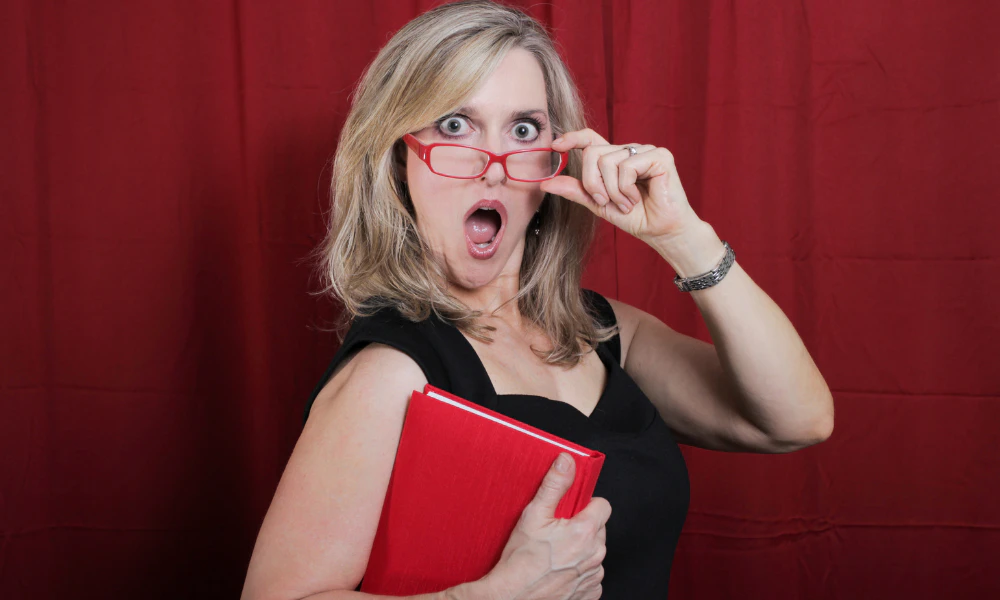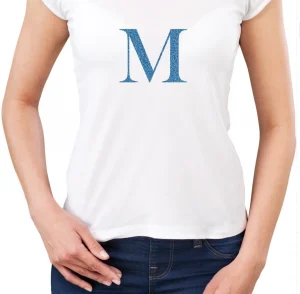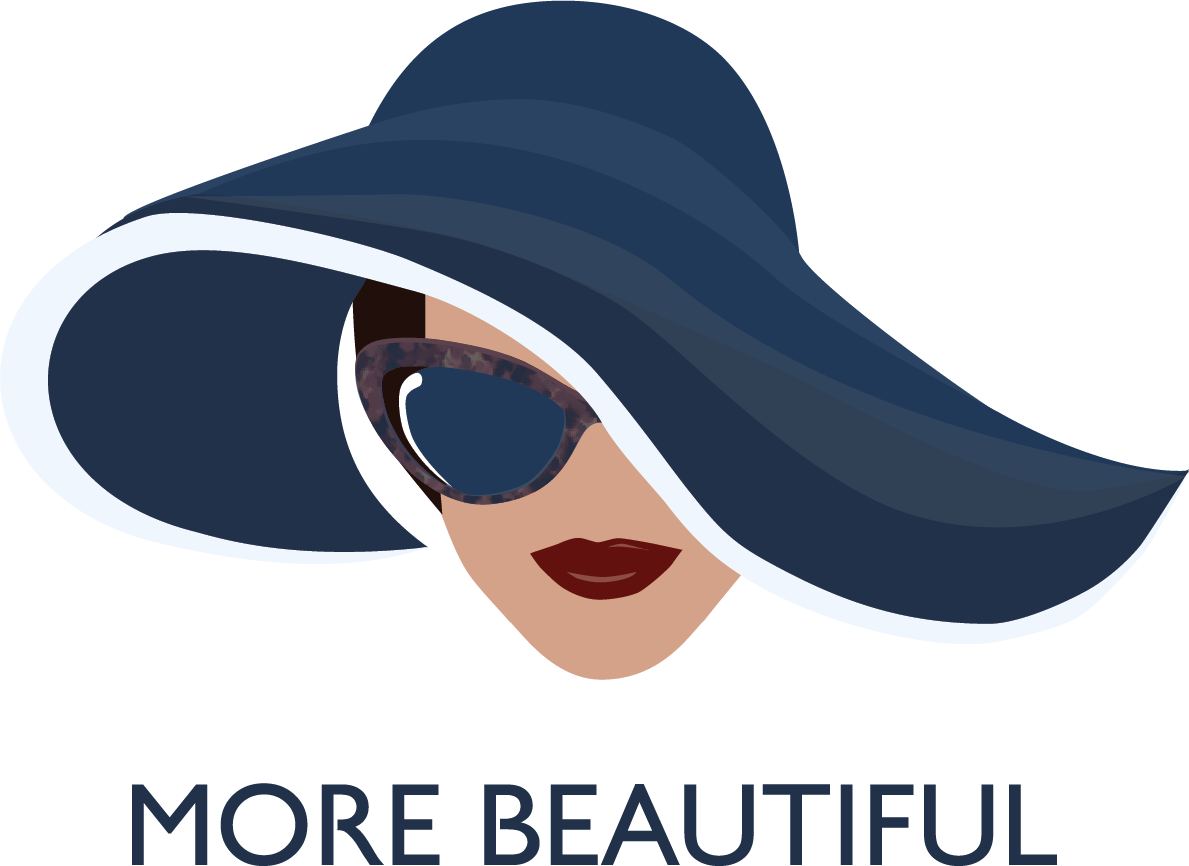
Should you lie about your age? This is an issue that’s come up a few times since I started More Beautiful. Apparently, I struck a nerve when I began using words like “midlife,” “middle-aged” and [insert big gasp here] “menopause” in my articles and on the podcast. Even some of my biggest fans have hinted that perhaps I should rethink using the aforementioned descriptors, which might inadvertently trigger some women.
That is, women who are all for age-relevant information and inspiration, but don’t like to think of themselves as middle-aged. Or in midlife. Or planning to go through menopause (if they haven’t already—and if they have, well, it’s a done deal so why dwell on it?).
Sometimes I think the real scarlet letter for women is M, after all these words that still call to mind a frumpy, irrelevant female who’s no longer in the game.
Listen to “The Invisible Middle-Aged Woman”
That’s certainly what one forty-something acquaintance in the entertainment industry insinuated last month. A funny and beautiful comic, she had been excited to do a podcast episode with me until she realized my target audience was women in the dreaded “midlife” group. You see, she was moving to Hollywood, trying to pass herself off as a younger woman, and feared putting herself in the over-40 category would jeopardize her career…So could we please not mention the M word when recording? (After a brief lecture on the increasing hotness of women over 40 and the missed opportunity to gather material for her stand-up act—I mean, what’s funnier than night sweats and reading glasses?—I politely sent her on her way, but invited her to circle back once she’d accepted her new reality.)
About a month later, while chatting on an episode with a guest in her mid-50s, I noticed she quietly downplayed her age by mentioning several times “life in her 40s.” She eventually explained that being completely transparent would have put her at a disadvantage at work and on the dating front.
Around the same time, a friend of mine admitted that her first reaction to More Beautiful was, “Can’t we just go on pretending we’re not in midlife and sweeping these age-related issues under the carpet?” But after reading and listening, she was hooked. “Maryann, it’s truly compelling,” she told me over the phone. “I think you’ve really tapped into something here, and I have to admit, the stories are so relevant to me.” Her realization made me think about how sometimes, we don’t know what we need until someone creates it for us. Like Henry Ford once said, “If I had asked people what they wanted, they would have said faster horses.”
Here’s the thing: Like it or not, if you are over 40 you are in midlife. (A few years ago, the cutoff was 35, but the Boomers decided that was too young for their taste so they pushed it back a few years. Also, humans started living longer.)
And here’s the other thing: Yes, ageism is still prevalent in the workplace and elsewhere. But lying about your age doesn’t fix this systemic problem; it just makes it worse for all of us in the long run. You’ve heard friends’ stories about connecting with someone online, then meeting in person only to discover the person is 20 years older than their photoshopped profile photo suggests—and the shock is palpable. And ever notice how, now that 55-year-old actors are regularly playing 40-year-old characters, that only makes actual 40-year-olds look older? Tsk, tsk.
(Yes, I’ve just dated myself by typing tsk, tsk. Leave me alone, I’m middle-aged.)

I have no problem revealing my age and showing the world what 52 looks like. I feel blessed that I have lived this long, because several people in my family did not. If someone had told my 25-year-old self that I would not only make it to my 50s, but feel vibrant and energetic at this age, I would have been stunned. Also, I may not have been as dismissive of certain older people, nor been afraid of getting older, nor made certain now-or-never career choices if I knew that what was coming wasn’t so bad.
I want young women to know that being in midlife is actually pretty wonderful. It’s the longest, most stable and enjoyable stage of life—after the idiocy of youth and before the shit hits the proverbial fan with old age. (Not that it will—but there I go again, projecting.) The point is, we should enjoy this optimal time.
One thing I’ve learned since embarking on this project is that our sisters in England and other countries are so far ahead of us, not only in embracing the beauty and viability of “women of a certain age,” but also in talking openly about the physical and emotional changes that accompany this life stage. Did you know that personal menopause coaches and menopause-training for corporate managers are common in several European nations? Can you imagine either of those services being widely offered in the U.S.? We can’t even get universal childcare in this country, never mind support for a biological transition that half the world’s population experiences.
I hope we can overcome this nonsense soon, wipe away any stigma that may still be associated with certain words, and unite in embracing our age and honoring the powerhouse group we are. It’s OK to dislike or be ambivalent about “midlife” (hell, if I’m honest with myself, it’s not my favorite word either), but until we come up with a sexier replacement, let’s just take it back and give it a makeover.
Thanks to our generation, Midlife now stands for everything that’s More Beautiful in our lives. It represents the experience, wisdom, self-awareness and inner peace that we have earned, and the path we’re on toward fully blossoming into the incredible women we were meant to be.
So don’t even consider lying about your age. It’s silly, it’s unnecessary and, like bad cosmetic surgery, it makes you look, well, old.



